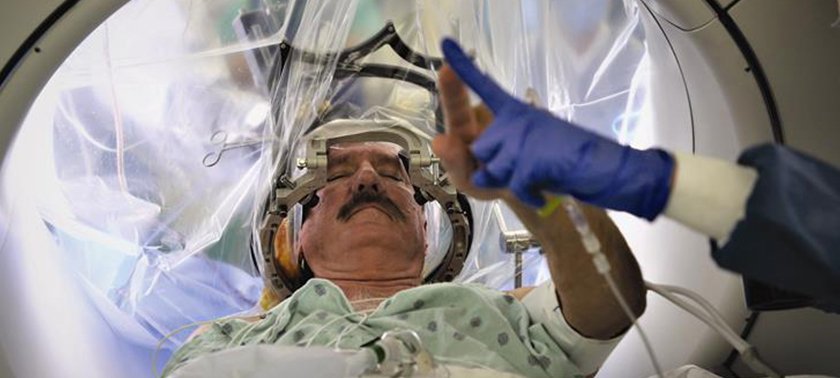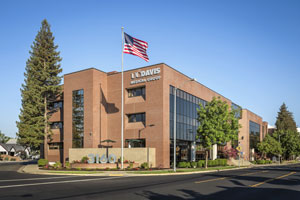UC Davis Functional Neurosurgery Fellowship
About the Fellowship
The UC Davis Functional Neurosurgical Fellowship is a 12-month CAST approved fellowship that offers advanced training in the multidisciplinary management of movement disorders, epilepsy, neuropathic pain, and spasticity. Designed for neurosurgeons seeking subspecialty expertise, the fellowship offers surgical training experiences in implantation of neuromodulation devices, laser interstitial thermal therapy, stereotaxy (robotic and frame-based), peripheral nerve surgery, and traditional lesioning procedures. Central to this program is the emphasis on multidisciplinary training spanning multiple medical disciplines, involvement in early feasibility studies with implantable brain computer interface technology, and ample opportunities for fellows to become in clinical research.
UC Davis Health serves as a quaternary referral center for Northern California, covering 33 counties and a population of over 6.5 million people. UC Davis is a recognized Parkinson’s Center of Excellence, offers California’s largest epilepsy monitoring unit (with California’s busiest sEEG program), and includes four surgical clinical faculty with fellowship training in both adult and pediatric functional neurosurgery.
Fellowship Director: David Brandman, M.D., Ph.D., F.R.C.S.C.
Length: 12 months
Location: UC Davis Medical Center, Sacramento, CA
Accreditation: CAST
The fellowship offers high-volume, hands-on experience in functional neurosurgery, with a strong focus on multidisciplinary care. Fellows participate in the surgical management of medically refractory epilepsy, movement disorders, neuropathic pain, spasticity, and peripheral nerve pathology. Research, education, and academic development are integral to the fellowship. Fellows will lead clinical translational research and/or quality improvement projects during the year, with opportunities to publish, present at national meetings, and attend specialized functional neurosurgery workshops and professional conferences.
UC Davis is a recognized Center for Excellence in Parkinson’s Disease. Weekly multidisciplinary discussions with colleagues in neurology, neuropsychology, social work and radiology facilitate are central for patient selection and fellow education. Fellows will become facile with the use multiple stereotactic targeting approaches (including traditional frame-based and robots), intra-operative microelectrode recordings, awake and asleep surgeries, and target/patient selection. Opportunities for translational research include collaborations with PhD faculty focusing on characterizing basal ganglia circuits in decision making, and first-in-human translations of novel recording devices.
UC Davis has California’s largest epilepsy monitoring unit, and is the only NAEC Level IV Adult and Pediatric center north of the Bay Area in California. Weekly multidisciplinary conferences in neurology, neuropsychology, and radiology are central for patient selection and fellow education. Surgeries include stereoelectroencephalography, traditional open craniotomies, laser interstitial thermal therapy, and neuromodulation. Opportunities for translational research include collaborations with PhD faculty with appointments in Neurology and Neurosurgery, focusing on single-neuron populations (i.e., recordings from Behnke-Fried electrodes) characterizing memory / cognition circuits, and cortical stimulation paradigms.
The fellowship curriculum is designed to provide a comprehensive and immersive experience in functional neurosurgery. Training includes:
- Deep brain stimulation surgery for movement disorders, epilepsy, neuropsychiatric conditions
- Neuromodulation for epilepsy, including DBS, RNS, and VNS
- Stereoelectroencephalography, with both robotic and frame-based approaches
- Open neurosurgical approaches to lesioning / disconnective epilepsy procedures (e.g., corpus callosotomy, functional hemispherotomy, temporal lobectomy)
- Minimally invasive lesioning procedures with laser interstitial thermal therapy
- Lesioning procedures for neuropathic pain (e.g., cordotomies, DREZ)
- Lesioning procedures for spasticity (e.g., dorsal rhizotomies)
- Nerve entrapment / tumor / grafting procedures
- Neuromodulation for pain (spinal cord stimulation, dorsal-root ganglion stimulation, peripheral nerve stimulation)
- Multidisciplinary pain, epilepsy, and movement disorder conferences
- Clinical and translational research with dedicated mentorship
- Opportunities for involvement with early feasibility studies with brain computer interface technology
- Cadaveric dissection opportunities
- Attendance at national conferences and hands-on skull functional workshops
Fellows will actively participate in all phases of patient care, including clinic, surgery, and follow-up, and will help coordinate care with related specialties. The curriculum is customizable based on the fellow’s interests and career goals. Fellows will be expected to either lead a translational research or clinical QI project during their fellowship.
- David Brandman, M.D. Ph.D. F.R.C.S.C. – Functional Neurosurgery
- Kia Shahlaie, M.D., Ph.D. – Functional Neurosurgery / Skull base Neurosurgery
- Stephano Chang, M.D. Ph.D. – Functional Neurosurgery / Peripheral Nerve Neurosurgery
- Julia Sharma, M.D. –Pediatric Functional Neurosurgery
- Jack Lin, M.D., Ph.D. – Director, Comprehensive Epilepsy Program
- Kiran Kanth, M.D. – Epileptologist, Epilepsy fellowship director
- Norika Malhado-Chang, M.D. – Co-Director, Parkinson’s Multidisciplinary Clinic
- Jon Snider, M.D. – Interim Director, Movement Disorders Group, Movement Disorders fellowship director
- Lin Zhang, M.D., Ph.D. – Movement Disorders Group
- Kristina Hart, D.O. – Movement Disorders Group
- Alexandra Duffy, D.O. – Movement Disorders Group
- Lisa Williams, M.D. – Physical Medicine and Rehabilitation
- David Copenhaver, M.D. M.P.H. – Division of Pain Medicine
- James Bourgeois, O.D., M.P.A., M.D. – Medical Director, Hospital Psychiatry Services
- Manpreet Singh, M.D. Ph.D. – Child and Adolescent Psychiatry
- Sergey Stavisky, Ph.D. – Neuroengineer, Co-Director, UC Davis Neuroprosthetics Lab
- Jie Zheng, Ph.D. – Neurophysiologist, Director, Z lab
- Carina O’hern, Ph.D. – Neuroscientist
- Gene Gurkoff, Ph.D. – Neuroscience, Vice-Chair for Research (Neurosurgery)


